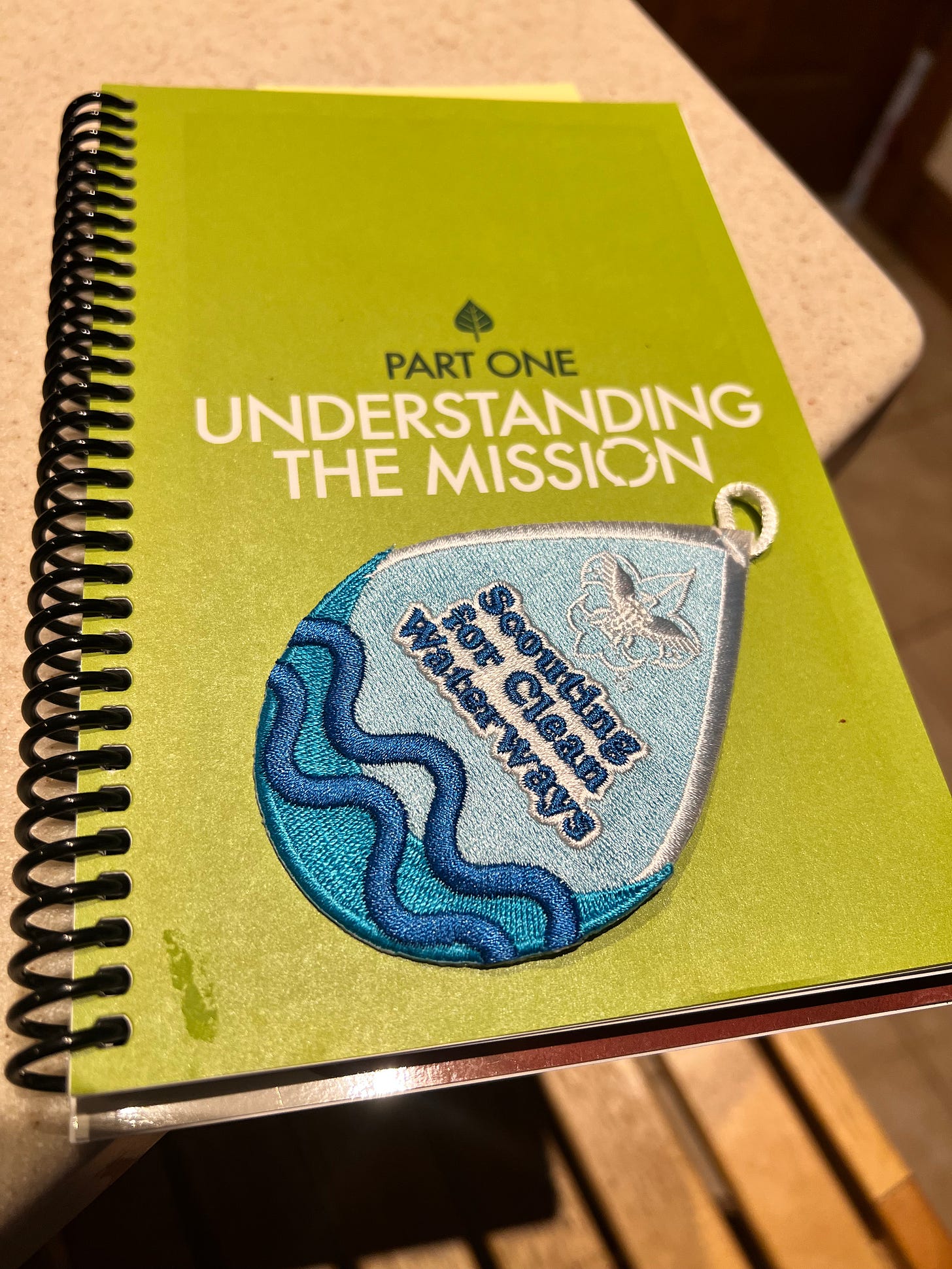One of my goals for our Scout units is to spend more time in the outdoors. During my time as a youth in the Cub Scouts program, camping was not part of my experience. Naturally, when I took the initiative to help form a Cub Scout unit with a Scouts BSA troop, I intended to leave the camping to the older Scout troop. I spoke with other Cub leaders to discover that recruitment and retention in Cub Scouting are enhanced through camping—so, now, we camp!
The Conservation Handbook explains, “Many children lose touch with the environment. Free time that might have been spent outdoors gets diverted into television programs, video games, cellphones, and the internet.”1 My reentry into Scouting as a leader has rejuvenated my love for nature. My first three merit badges on my path to earning the rank of Eagle Scout were Nature, Forestry, and Environmental Science. I had dreamed of being a Forest Ranger in the Shawnee National Forest in southern Illinois when I was 11 years old.
Now, I am a Scouting America Certified Angling Instructor. I am hitting the waters and teaching youth about angling, emphasizing the importance of fish and wildlife management. Scouting America has collaborated with Leave No Trace since 1997. The Outdoor Code was first seen in Boy’s Life magazine with a letter from President Eisenhower:
As an American, I will do my best to—
Be clean in my outdoor manners
Be careful with fire
Be considerate in the outdoors
Be conservation minded. 2
My goal is to teach Scouts, just as I was taught, to leave a place better than I found it. I do this even at a restaurant table, I’ll start to pick up and put things in an orderly manner for the waiter. I tell my kids it isn’t the waiter’s job to clean up after slobs.
In my opinion, the proposition of climate change isn’t a convincing one to the culture as a whole—it is a concept far off from someone’s day-to-day radar. Bear Grylls writes passionately about climate change in his scout handbook, Do Your Best: How to be a Scout. Grylls discusses global temperatures and provides a bullet-point chart outlining the various distant impacts on the Earth caused by humans.3 It’s just not something a person interacts with every day, and human nature doesn’t tend to act on it unless there’s an immediate concern. Instead, conservationists should appeal and ask, “Do you want clean water? Do you want clean air?” “Are you okay with your parks & waterways being cluttered with trash? For example, I went fishing at a local SFAWA, and I couldn’t believe the beer cans on the banks—who could do this to a place where people are actively enjoying it? I was thoroughly disgusted with the site.
My Scouting units will be doing their part this year. The Conservation Handbook quotes President Theodore Roosevelt, “Do what you can, with what you have, where you are,”4 and that will be our motto moving forward, as we help our community and parks in our local area. We will be participating in Scouting America’s initiative “Scouting for Clean Waterways.” We will take it to our local park district to clean the park and pond that connects to the Illinois River via a drainage ditch. The older Scouts will go out to the nearby SFAWA and help clean up the beer cans and trash to help our Earth look and remain beautiful for the next person who comes to enjoy it.
—In Scouting,
Phillip H
Robert Birkby, The Conservation Handbook, ed. Michael Huneke, Third Edition (Irving, Texas: Boy Scouts of America, 2024), 37.
Ibid, 27.
Bear Grylls, Do Your Best: How to Be a Scout (London: Hodder & Stoughton, 2023), 76-77.
Birkby, 15.




